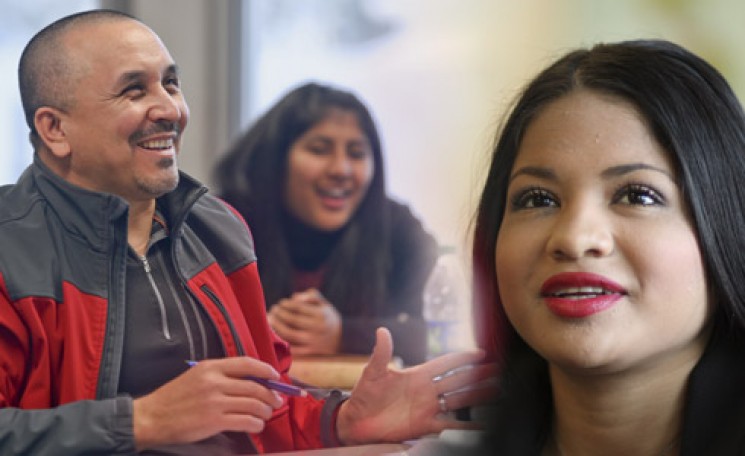The inaugural Highline College Latino Summit, was held February 10-11, 2015, from 9:30 a.m. to 2 p.m. in the Highline Student Union. The summit featured interactive and inspiring workshops and presentations targeted for Latino students who attend Highline College and area high schools.
For questions or more information, contact Elizabeth Rangel at erangel@highline.edu or (206) 592-4180.
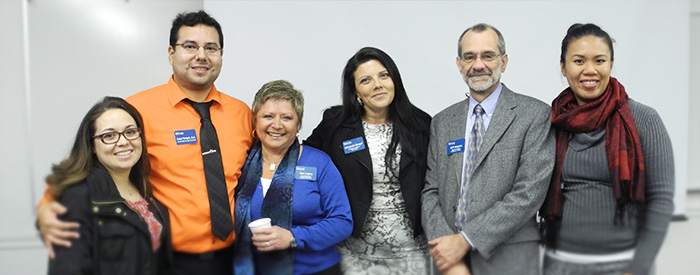
Latino Summit planning committee members and supporters gather before Tuesday’s start of the inaugural two-day event: LeAnn Blanco, left, Cesar Rangel, Toni Castro, Elizabeth Rangel, Jeff Wagnitz, and Dr. Rolita Ezeonu. Castro opened the summit by telling the packed room of approximately 150 middle and high school students, “There’s something I know for sure. I want you to remember when you leave Highline College today that every single one of you in this room has the potential to go to college and to graduate from college.” A child of Mexican immigrants, Castro was the first in her family to graduate from college. Now Highline’s Vice President for Student Services, Castro added, “Today is your first day of college.”
Schedule
Tuesday, February 10, 2015
9:30-9:45 a.m.: Opening
Toni Castro
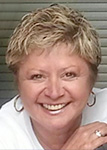 Vice President for Student Services at Highline College
Vice President for Student Services at Highline College
“There’s something I know for sure. I want you to remember when you leave Highline College today that every single one of you in this room has the potential to go to college and to graduate from college.”
9:50-10.50 a.m.: Session I
Susana Chavez Fajardo
Five Minutes or Less
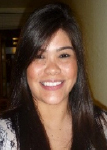 Five minutes is the length of time it takes people to perceive Latinos and add stereotypes. During this presentation, you will explore the reason why Latinos are perceived/stereotyped in this manner, how to respond/approach to certain actions, what Latinos can do to not be perceived in this form, and be able to build connections/bridges to overcome these stereotypes.
Five minutes is the length of time it takes people to perceive Latinos and add stereotypes. During this presentation, you will explore the reason why Latinos are perceived/stereotyped in this manner, how to respond/approach to certain actions, what Latinos can do to not be perceived in this form, and be able to build connections/bridges to overcome these stereotypes.
At her young age, Susie’s life changed dramatically with all that was new to her: new language, new culture, new traditions, new food, and overall, a whole new life. Susie soon realized that she would face many obstacles in her life. She chose to dedicate all her heart and passion to not letting those obstacles bring her down and break her spirit. She decided that education would be her strongest and most powerful ally to achieve her goals.
In high school, Susie was involved in sports, the dance team, and clubs in her community. She excelled academically. Even though she was a great student, the lack of support, direction and money kept her from leaving her hometown. After high school, Susie attended Wenatchee Valley College, where she earned her associate degree in 2006, and then went on to Washington State University, where she earned her bachelor’s degree in 2010, making her the first in her family to graduate with a college degree.
Following college, Susie moved to Seattle and worked for two private sector companies in downtown Seattle. After three years, Susie realized that her passion was working with and helping students achieve their educational goals. She applied for a job at Highline College and is now the TRiO Program Assistant. Susie is currently pursuing her master’s degree in Public Administration at University of Washington–Seattle and plans to make a difference one step at a time.
Leann Blanco
“Dress” for Success
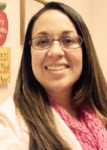 When you think about the word “dress,” what is the first word that comes to mind? Most people would think clothes, right? In this short presentation, Blanco will take you through a fast-forward of the labels she dressed herself in and the labels that prepared her for success. What “labels” are you wearing?
When you think about the word “dress,” what is the first word that comes to mind? Most people would think clothes, right? In this short presentation, Blanco will take you through a fast-forward of the labels she dressed herself in and the labels that prepared her for success. What “labels” are you wearing?
In high school, she participated in the Running Start program as a junior and senior and graduated from Wapato High School in 1999. The following summer, she married her best friend. She faced challenges in starting a new life with a baby on the way, but persevered and continued her education.
She graduated from Wenatchee Valley College in 2005 with the goal of pursuing a career in health care. In 2006 she and her family moved back to Yakima, Washington, and in 2009, she graduated from the Medical Assisting program at Yakima Valley Community College. While attending the program, LeAnn had the honor of sitting as an advisory board member, which she continued to do after graduation.
LeAnn is a Certified Medical Assistant and a health care instructor at Highline College. She has practiced in various medical settings and in a wide range of positions, from being a receptionist fresh out of high school to working directly with patients and physicians as a Certified Medical Assistant. She is currently pursuing her bachelor’s degree in psychology and Latin America studies.
10:55-11:45 a.m.: Lunch
11:50 a.m.-12:50 p.m.: Session II
Joshua Magallanes, BS, MA, LMHCA, NCC
A Look at Sexual Orientation as an Identity in the Latino Community
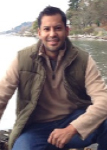 Have you ever wondered how sexual orientation and gender play a major role in your identity? Many communities of color think of sexual orientation and gender as topics that are taboo and shouldn’t be explored beyond the family. In this interactive session, you will explore how sexual orientation and gender play a role in your identity as a Latino.
Have you ever wondered how sexual orientation and gender play a major role in your identity? Many communities of color think of sexual orientation and gender as topics that are taboo and shouldn’t be explored beyond the family. In this interactive session, you will explore how sexual orientation and gender play a role in your identity as a Latino.
After earning his Bachelor of Science degree from Northern Arizona University, Josh moved to Seattle in February 2004 and began working at Highline that fall where he is currently a faculty member teaching in both the Human Services and Diversity and Globalism Studies departments.
In June 2012, Josh earned his master’s degree in community counseling from Seattle University. He provides therapy in his private practice for individuals, couples, families and facilitates process groups. He has worked as a consultant for the Edmonds School District, where he provided professional development for K–12 staff and administrators. Josh explores the societal expectations placed on communities of color and queer communities across the region, state and nation as a way to bring about awareness and create change through facilitated workshops and presentations.
Iesha Valencia
Latin@ Youth, Leadership and Character: Developing Real Relationships with One Another
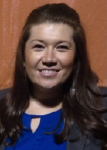 Have you ever wanted to have better friendships or wished that people would treat you with more respect? Reality television often sets the standard for how youth expect to interact with each other in the real world. Everyone knows that reality television is just that, television. So why do people treat each other the same way reality TV celebrities are treating each other on their popular TV shows? This workshop will explore the benefits of and practical steps toward building authentic relationships with your peers and learn ways you can lead by setting the example for others.
Have you ever wanted to have better friendships or wished that people would treat you with more respect? Reality television often sets the standard for how youth expect to interact with each other in the real world. Everyone knows that reality television is just that, television. So why do people treat each other the same way reality TV celebrities are treating each other on their popular TV shows? This workshop will explore the benefits of and practical steps toward building authentic relationships with your peers and learn ways you can lead by setting the example for others.
Having a passion for working with college students who are the first in their family to go to college led her to graduate school. In 2009, Iesha earned her M.Ed. in higher education and student affairs from the University of Vermont and has since worked with college students at the University of Vermont, Seattle University and now Highline College. Iesha is currently the Assistant Director for Student Leadership in the Center for Leadership & Service at Highline College.
12:55-1:50 p.m.: Session III
Jessica Rangel
Breaking the Stereotype—We’re Not Takers but Contributors
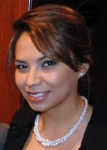 In today’s society, you see and hear so many negative stereotypes about Latinos and the influences that they have made in the United States. This workshop will address why Latinos should work together to change those perceptions and in the process, show how much Latinos contribute in a positive way today and in the future of our country.
In today’s society, you see and hear so many negative stereotypes about Latinos and the influences that they have made in the United States. This workshop will address why Latinos should work together to change those perceptions and in the process, show how much Latinos contribute in a positive way today and in the future of our country.
1:50-2:00 p.m.: Closing
Wednesday, February 11, 2015
9:30-9:45 a.m.: Opening
Alex Manuel, Director of Educator Pathways for Washington State
9:50-10.50 a.m.: Session I
Stephanie Ojeda Espinoza
College Student for a Day: English 101 Demonstration
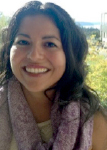 In the movies, college classes are held in an auditorium where a professor lectures to the class. What do you think college will be like? When you go to college, you will take English 101, a writing course required at colleges nationwide. This session will be taught as one day of an English 101 class so students can get a realistic idea of how college classes are taught.
In the movies, college classes are held in an auditorium where a professor lectures to the class. What do you think college will be like? When you go to college, you will take English 101, a writing course required at colleges nationwide. This session will be taught as one day of an English 101 class so students can get a realistic idea of how college classes are taught.
Stephanie has worked in various student outreach programs, such as the Umoja learning community and the Puente program. In June, Stephanie moved from California to Washington for a teaching position in the English department at Highline College. Stephanie’s passion is improving educational access for disadvantaged students.
Joe Aguilar
Oh, You Don’t Have Time for School? Think Again!
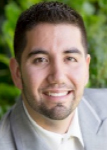 In this workshop you will learn what it takes to juggle multiple things in life and still come out productive and successful. You will listen to a young professional who was able to complete a bachelor’s degree while being heavily involved in many clubs, working part time, participating in sports, and raising a child. There are 24 hours in a day; during this session you will learn how to use each one of them productively.
In this workshop you will learn what it takes to juggle multiple things in life and still come out productive and successful. You will listen to a young professional who was able to complete a bachelor’s degree while being heavily involved in many clubs, working part time, participating in sports, and raising a child. There are 24 hours in a day; during this session you will learn how to use each one of them productively.
Like many students do, Joe went through many obstacles and hardships during college, but he was able to earn his bachelor’s degree in communications and society with an emphasis in organizational development. Currently, he is an academic adviser at Highline College for Running Start and general students. Joe is also involved in many initiatives that promote higher education within the community.
Joe is pursuing his master’s degree in higher education at the University of Washington. His career goals include becoming a director of a student service’s program and possibly a dean or vice president. His passion is helping students of all backgrounds reach their academic, career and personal goals.
10:55-11:45 a.m.: Lunch
11:50 a.m.-12:50 p.m.: Session II
Dr. Benjamin Gonzalez
Change Our Future
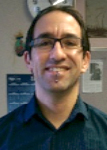 Politics can often seem something removed and even irrelevant to our everyday life. Why should we care who is president or elected to Congress? In this talk, Dr. Gonzalez will discuss why politics matters, why you should be paying attention and why it’s crucial that Latinos, as minorities, participate in the political system. Through a combination of personal stories and a discussion of policies that have had significant impacts on the Latino community, the goal is to inspire students not only to vote but also to pay more attention to what happens in our political system.
Politics can often seem something removed and even irrelevant to our everyday life. Why should we care who is president or elected to Congress? In this talk, Dr. Gonzalez will discuss why politics matters, why you should be paying attention and why it’s crucial that Latinos, as minorities, participate in the political system. Through a combination of personal stories and a discussion of policies that have had significant impacts on the Latino community, the goal is to inspire students not only to vote but also to pay more attention to what happens in our political system.
The time out of school had opened his eyes to the importance of education and the same year he finished high school, he began his undergraduate education. Ben would become the first in his immediate family to finish college in 2001, earning his Bachelor of Science degree and graduating Summa Cum Laude from the University of Oregon.
Having fallen in love with political science as an undergraduate, he decided to pursue a graduate education and began the master’s program at the University of Victoria in 2004. Graduating in 2007, he started his Ph.D. at the University of Washington later that year, earning his doctorate in 2014.
Teaching has long been his passion and he was hired as a professor in political science at Highline last year, one of his lifelong goals. Coming from a disadvantaged background, he strives to inspire students to pursue their education, highlight the importance of politics in daily life, and help students overcome the obstacles they face.
Elizabeth Rangel
“Being a Foreigner” in the Classroom: How to overcome it!
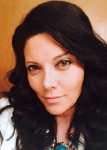 In order to see the importance of education today, Latinos must look back at the struggles that occurred in the past. This workshop will discuss what it takes to understand the importance of what knowledge and education means for the Latino community and how to utilize the system to get ahead. Through videos, stories and history, it will show how changes in the education all started with students saying enough is enough.
In order to see the importance of education today, Latinos must look back at the struggles that occurred in the past. This workshop will discuss what it takes to understand the importance of what knowledge and education means for the Latino community and how to utilize the system to get ahead. Through videos, stories and history, it will show how changes in the education all started with students saying enough is enough.
She attended Big Bend Community College the summer following high school, working full-time while attending college. She dealt with homelessness, a family member behind bars, and the responsibility of helping raise her nephew, all while attending her first two years of college. She graduated from BBCC and took almost a year off and moved back home to Oregon before deciding that working at Albertsons would not be her life career. She took the initiative to apply and was accepted to four universities before selecting Central Washington University, where she finished her bachelor’s degree. While attending CWU, she became interested in learning about her Mexican roots and took Spanish and Chicano/Latin American studies classes, became president of M.E.Ch.A., and studied in Morelia, Mexico, at La Universidad de Latina América. She finally found her place and her full identity when she met her family in La Piedad, Michoacan, Mexico.
In her last year of college, Elizabeth had a daughter, which helped push her to complete her degree. Since 2007, when she graduated from CWU, she has been working with students and in every level of education. She now works as an Outreach Assistant at Highline College and has a true passion for helping students understand their full potential and realize what can be done when you don’t give up on yourself.
12:55-1:50 p.m.: Session III
Alumni Panel: Life After Highline
Highline College alumni will discuss the challenges and pathways in the university and the workplace after graduating from Highline.

